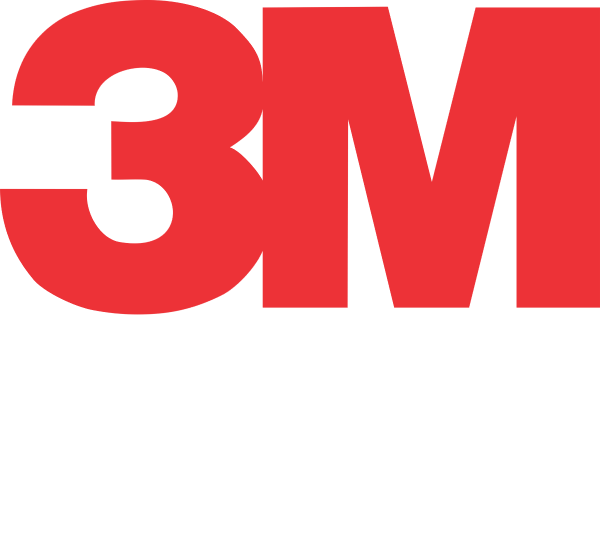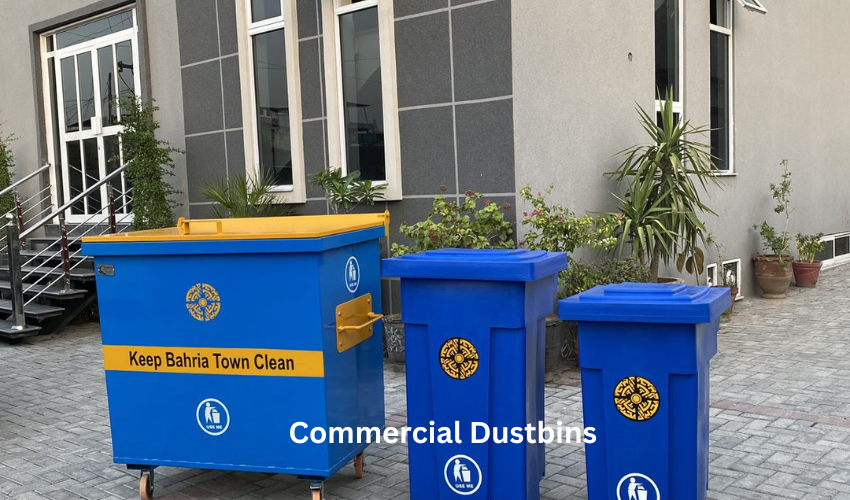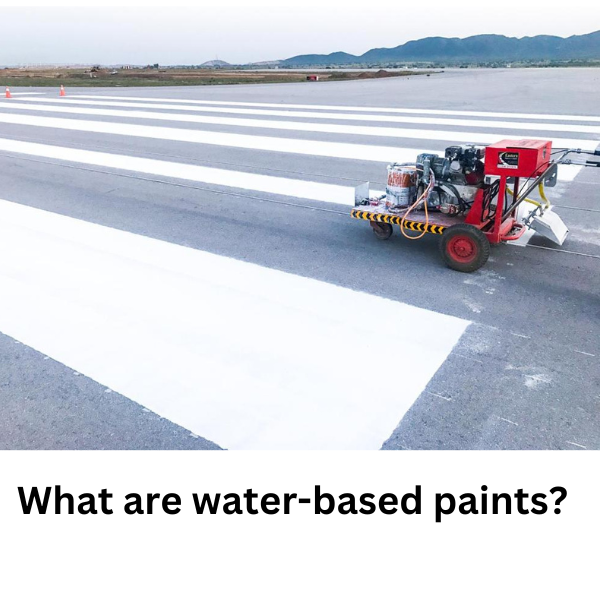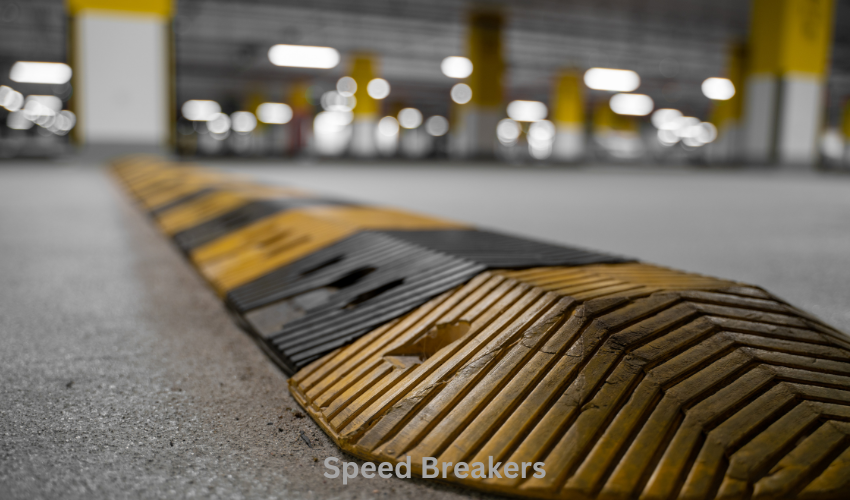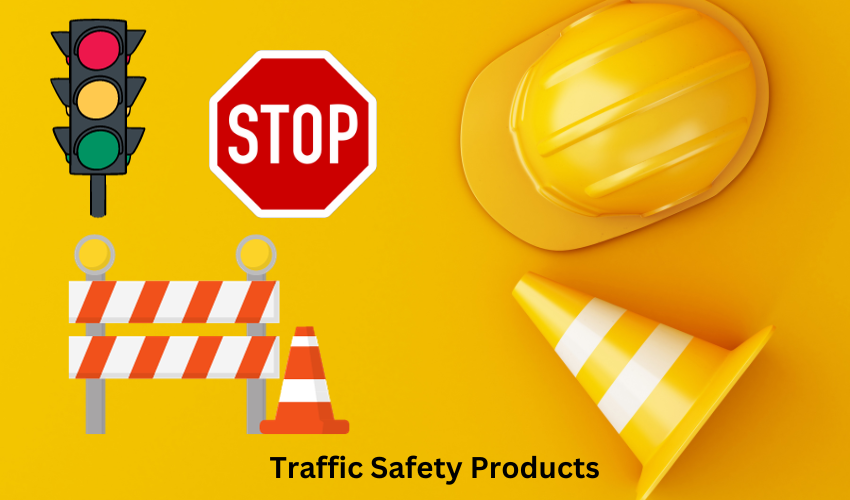Commercial dustbins are important for disposing off the commercial waste and help maintain hygiene.
Every business, regardless of its size or industry, generates waste. Whether it’s a bustling restaurant, a busy office, or a manufacturing facility, the proper management of commercial waste is a crucial aspect of daily operations This is where commercial dustbins highlight its importance.
While often overlooked, these simple yet essential containers play a vital role in maintaining a clean and organized environment. What are these dustbins like and how do they play an important role in contributing to a more sustainable future, this is what we are going to explore in this blog.
So without any further ado, let’s get started!
What are Commercial Dustbins?
Simply put, commercial dustbins are bins or large containers used to store commercial waste before collection or disposal. They are also known as commercial trash bins or commercial waste bins.
These receptacles are designed to collect and store garbage, waste, or recyclable materials generated by businesses, institutions, or other commercial establishments. These dustbins are typically much larger and more durable than household trash cans, as they need to handle a higher volume of waste on a daily basis. Commercial dustbins come in various sizes, shapes, and materials to suit the specific needs of different businesses and industries.
Different Types of Commercial Dustbins
Commercial dustbins come in various types, each designed to cater to specific needs and waste management requirements in commercial and industrial settings. Here are some common types of commercial dustbins:
350L Waste Collection Trolley
A 350L Waste Collection Trolley typically refers to a mobile container designed for collecting and transporting waste or recyclable materials. Due to their capacity of 350L, they are named as 350L waste collection trolleys. These trolleys are typically built from durable materials, such as heavy-duty plastics or metal, and may include reinforced corners or edges. Most of them also come with a cover or lids to contain the smell. Handles are also integrated to facilitate pushing or pulling the trolley.
These trolleys are commonly used in commercial and industrial settings to streamline waste management processes. They are particularly valuable for businesses that generate a significant amount of waste daily, such as restaurants, hotels, hospitals, and manufacturing facilities.
Wheelie Bin Enclosures
Wheelie bin enclosures are outdoor structures or compartments designed to house and conceal wheelie bins. They provide an organized and aesthetically pleasing solution for waste storage in residential, commercial, or public settings.

Wheelie bin enclosures can help keep pests, such as rodents and insects, away from the waste, reducing the risk of infestations and the spread of diseases.
Compactor Bins
Compactor bins are specialized waste containers designed to efficiently manage and reduce the volume of waste generated in commercial and industrial settings. These bins employ a compaction mechanism that compresses waste materials, allowing for more efficient storage and collection.
Compactor bins are particularly useful in settings where space is limited. Their ability to condense waste allows for the efficient use of storage areas, which can be crucial in urban environments or areas with restricted space.
70L Garbage Bins
A 70-liter garbage bin is a medium-sized waste container typically used for collecting and temporarily storing household or small-scale commercial waste. These household and industrial bins are compact and often designed to fit easily in kitchens, bathrooms, offices, or other indoor spaces. Their smaller size makes them suitable for areas with limited floor space. These bins are typically made from plastic or metal.
Round Plastic Waste Bins with Dollies
Round plastic waste bins with dollies are waste containers designed for easy mobility and efficient waste collection and disposal. These are used in various settings, including commercial, industrial, and institutional environments.
These waste bins typically have a cylindrical or round shape. This makes it space-efficient and easy to maneuver in tight spaces or crowded areas. These bins are made from durable plastic material and are lightweight. The addition of dollies to these bins allows the easy transportation of these bins.
Dumpsters
Dumpsters are large, typically rectangular, or cubic waste containers designed for the temporary storage of waste and debris. They are commonly used in residential, commercial, industrial, and construction settings for efficient waste collection and disposal. Dumpsters come in various sizes, ranging from small containers with a few cubic yards of capacity to large roll-off dumpsters with 40 cubic yards or more.
Dumpsters can accommodate various types of waste, including general trash, construction debris, recyclables, and yard waste. Some dumpsters are specialized for hazardous materials or specific waste streams. They are often rented for temporary use during construction projects, renovations, or special events
Forklift Waste Tipping Bin
A forklift waste tipping bin, also known as a forklift tipping skip or simply a tipping bin, is a specialized waste container designed to be lifted and emptied using a forklift or similar material handling equipment. These bins are commonly used in industrial and commercial settings for the efficient collection and disposal of waste, debris, and recyclable materials.
Forklift waste tipping metal bins typically have a rectangular or cubic shape with an open top and a hinged or removable front door. The front door allows for easy loading of waste materials.
Foot Pedal Wheelie Bins
Foot pedal wheelie bins are waste containers designed with a foot-operated pedal mechanism that allows users to open the lid or cover of the bin without using their hands. Users can simply press the foot pedal to open the lid, which reduces the need for direct contact with the bin’s surface, promoting hygiene and minimizing the risk of cross-contamination. These steel bins are particularly useful in environments where hygiene is a top priority, such as kitchens, healthcare facilities, and food service establishments.
Roll-Off Containers
Roll-off containers, are large, rectangular waste containers with an open top and wheels that allow them to be easily transported and rolled on and off specially designed trucks. These containers are commonly used in construction, renovation, demolition, and other industrial and commercial applications for efficient waste and debris collection and disposal. Roll-off containers come in various sizes, typically measured in cubic yards.
These are some of the most commonly used commercial dustbins while the list does not end here. There are a variety of other types too, each designed and customized for a unique purpose. Now let’s move to understand the benefits that these commercial bins can provide:
Benefits of Using Commercial Dustbins
Commercial dustbins offer several benefits for businesses, institutions, and public spaces. Proper waste management is essential for maintaining cleanliness, hygiene, and environmental responsibility.
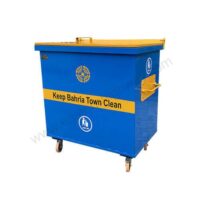
Here are the key benefits of using commercial dustbins:
- Hygiene and cleanliness
- Odor control
- Pest Prevention
- Waste segregation
- Improved aesthetic and orderly appearance of public areas
- Efficient waste collection
Difference between Commercial Dustbins and Standard Domestic Bins
You might be pondering about the reasons your business would benefit from a commercial bin rather than the conventional domestic bin. Although the two serve the same purpose but a commercial bin differs significantly from a standard domestic bin in several key aspects
| Aspects | Commercial Dustbins | Domestic Dustbins |
| Size and Capacity | Are larger and have higher capacities | Are smaller and have lower capacities |
| Best Suited For | Commercial, industrial, or public spaces | Households |
| Location and Use | Placed in public areas, businesses, institutions, and industrial facilities | Placed at homes and are used for household waste generated by residents |
| Design and Manufacturing | Designed to be more robust and durable to withstand heavy use, exposure to the elements, and potential abuse in public areas | Designed with aesthetics and space-saving in mind. They may have more decorative or smaller designs suitable for residential settings |
| Waste Separation | Some might have multiple compartments or are color-coded to facilitate waste separation, promoting recycling and responsible waste disposal | One compartment for general waste disposal |
| Mobility | Some commercial dustbins are designed for easy transportation and may have features like wheels or handles | Domestic bins are stationary |
| Emptying Process | Typically emptied by waste collection services | Emptied curbside by municipal waste collection services or manually by homeowners |
| Regulations | Businesses and public institutions often need to comply with specific regulations regarding waste management and the use of commercial dustbins | Residential waste disposal is subject to local regulations, but compliance requirements are typically less stringent compared to commercial waste management |
What to Look for When Buying Commercial Dustbins Online
When buying commercial dustbins online, there are several important factors to consider to ensure you choose the right bins for your business or organization’s specific needs. Here’s a checklist of what to look for:
- Size and capacity
- Material
- Durability
- Mobility
- Lid and its types
- Waste segregation
- Design
- Ease of Maintenance
- Supplier Reputation
- Cost and Budget
- Delivery, return, and exchange policies
- Customer services
- Warranty
- Local waste management regulations
How to Decide on a Commercial Dustbin
Choosing the right commercial dustbin for your business or organization involves considering several important factors to ensure it meets your specific waste management needs. Here’s a step-by-step guide on how to decide on a commercial dustbin:
Step 1 – Assess Your Waste Volume
Begin by estimating the volume of waste your business generates daily or weekly. Consider the type of waste, such as general waste, recyclables, organic waste, or hazardous materials.
Step no 2 – Determine the Number of Bins
Decide whether you need a single large bin or multiple bins for different waste streams. For effective waste segregation, consider having separate bins for recyclables, general waste, and any other specific waste types.
Step 3- Choose an Appropriate Size and Capacity
Choose the appropriate size and capacity for each bin based on your waste volume and the frequency of waste collection. Ensure that the bins can hold the expected volume without overflowing.
Step 4- Check Material and Durability
Select bins made from durable materials such as heavy-duty plastic, metal, or stainless steel. Consider the durability of the bins in relation to the waste types you will be disposing of.
Step 5- Look for Lid Type
Determine whether you need bins with lids or open-top bins. Lidded bins help control odors, prevent pests, and keep the waste contained. Choose a lid type that suits your waste disposal needs.
Step 6- Look for Mobility Options
Assess whether mobility is essential for your business. If you need to move the bins within your facility, consider bins with wheels and handles for easy transportation.
Step 7- Select the Design
Consider the design and aesthetics of the bins, especially if they will be placed in visible areas of your business. Some commercial bins come in various colors and styles to match your environment.
Step 8 – Look for Color Coded
If waste segregation is required for recycling purposes, choose bins that facilitate easy separation of different waste types. Look for color-coded or labeled bins to make waste sorting straightforward.
So these are the eight easy steps that can help you to select a perfect waste bin for commercial use.
Your Trusted Choice in Choosing a Commercial Dustbin
The proper management of commercial waste is essential for businesses of all sizes and industries. Commercial dustbins, with their various types and benefits, play a crucial role in maintaining cleanliness, hygiene, and environmental responsibility. These bins are designed to handle higher volumes of waste in commercial and industrial settings.
When you are ready to make the right choice in selecting commercial dustbins, trust Eastern Highway. We offer a wide range of high-quality commercial waste bins to cater to your specific requirements. Our commitment to customer satisfaction, along with our adherence to local waste management regulations, makes us your trusted partner in maintaining a clean and sustainable environment for your business.
Contact us today and take the first step towards effective waste management for a brighter and greener future.



